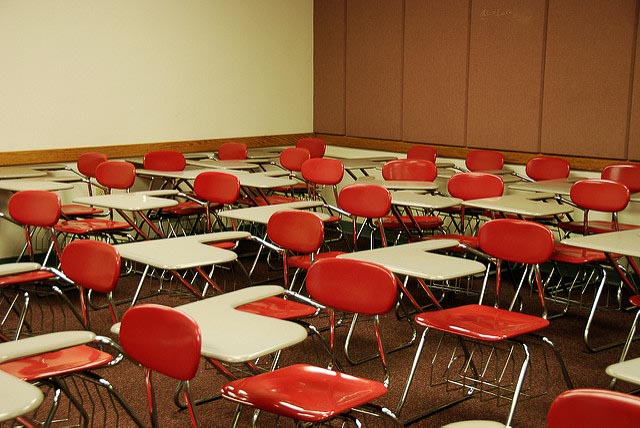While the Urban Edge strives to provide readers with daily news and insights about urban policy, we’re also voracious readers of city news ourselves. As part of a weekly feature, Senior Editor Ryan Holeywell highlights the week’s most interesting articles from around the web about urban policy and city life.
An Effective but Exhausting Alternative to High-School Suspensions
The New York Times Magazine explores how suspensions often do more harm than good. Moreover, "studies show that suspensions are not just ineffective but inequitable, as students of color are more likely than white ones to be suspended for the same behaviors," the Times writes. The publication highlights a new approach -- "restorative justice" -- that is increasingly being adopted over "zero-tolerance" discipline.
Big-Box Stores Battle Local Governments Over Property Taxes
Big box stores across the country are employing a new strategy to reduce their property tax assessments by as much as half, which is resulting in dramatic declines in revenue for some communities, Governing reports. The "dark store" strategy argues that it's hard to sell an empty big box store at market rate, so the assessments should be lowered, even when the stores are occupied. "You have to wonder," one former assessor said. "Are these people just being obnoxious or are the properties really overvalued and it’s just that now someone’s looking at it?”
Houston Dams are Old, Beat Up and a Vital Line of Defense
Houston’s Addicks and Barker dams are each 70 years old and rank among the country’s top six most unsafe dams. Today they’re holding more water for longer periods than they were ever intended to, the Houston Chronicle reports, and the Army of Corps of Engineers is searching for a long-term solution. If the dams fail, half of Houston goes underwater.
The Stunning Geographic Divide in American Creativity
New data from the National Endowment for the Arts suggests there's a lot of creative activity occurring far from the coasts, which may undermine urbanist Richard Florida's assertion that creativity is largely confined to coastal states, the Washington Post's Wonkblog reports. Instead, the NEA suggests there is a clear North-South divide in terms of creativity, rather than a coastal divide.
Rich City, Poor City: How Housing Supply Drives Regional Economic Inequality
The U.S. housing market is becoming more unequal, according to real estate data service Trulia. The most expensive housing markets have larger price gains compared to cheaper markets, ensuring “the housing rich are getting richer while the housing poor are getting poorer.” The findings undermine the idea that less-expensive housing markets will eventually "catch up" to the more expensive ones.
City Lab interviews author Samuel Arbesman, whose new book Overcomplicated chronicles the challenge of living in a technological complicated world. "Cities have developed in a complex and often fascinating manner," the author says, "but along the way, we have portions of these systems that are more complex than any single person can understand."







